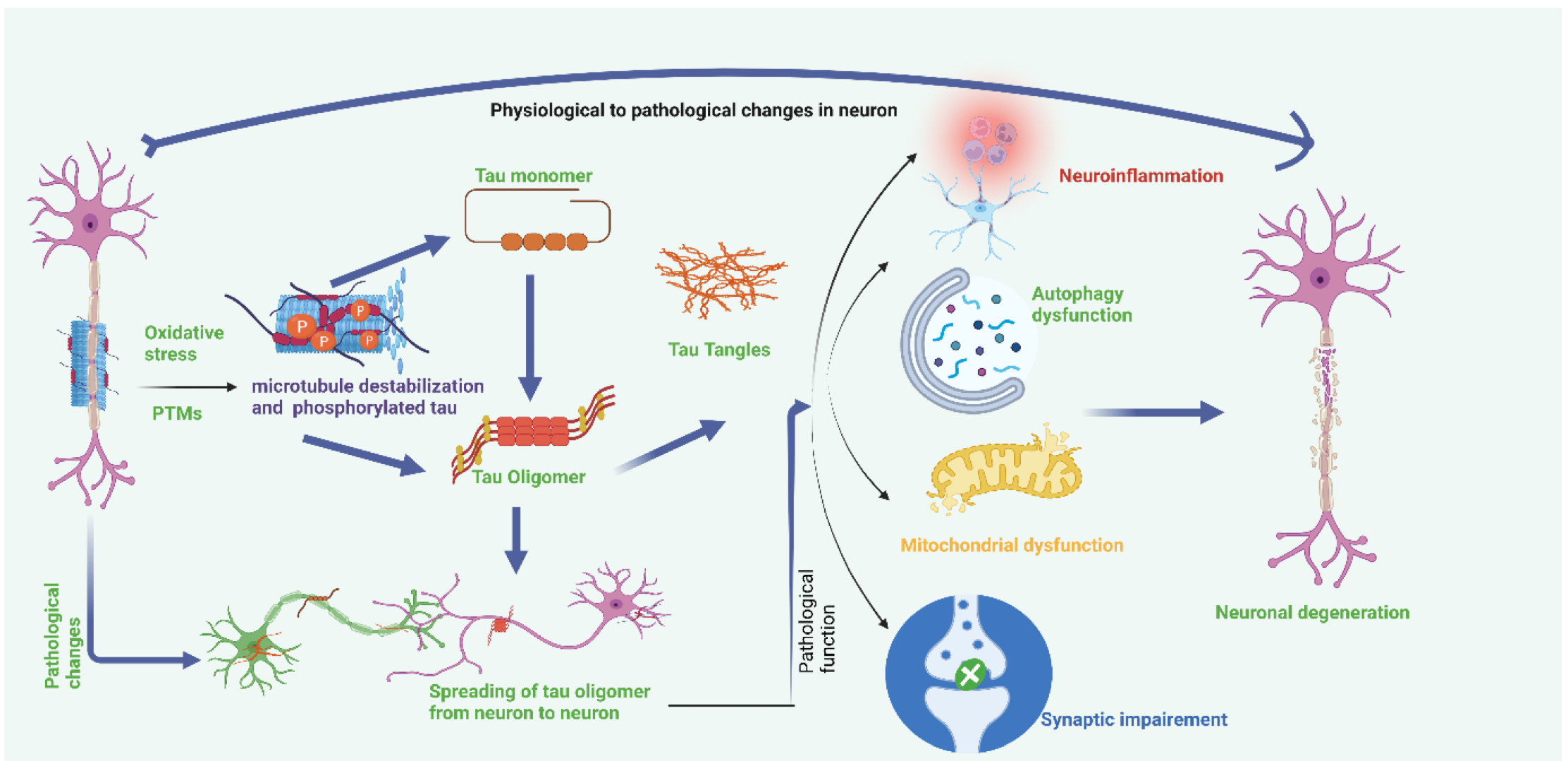Neurodegenerative Disease Phosphorylation Target Screening Service
Neurodegenerative Disease Phosphorylation Target Screening Service is a specialized phosphoproteomics-based approach designed to identify key phosphorylation events associated with Alzheimer’s disease (AD), Parkinson’s disease (PD), amyotrophic lateral sclerosis (ALS), and other neurodegenerative disorders. MtoZ Biolabs offers a Neurodegenerative Disease Phosphorylation Target Screening Service that enables high-sensitivity, high-resolution quantification of phosphorylation events, providing valuable insights into neurodegeneration mechanisms and potential therapeutic interventions.
Phosphorylation is a critical post-translational modification that regulates protein activity, stability, and interactions in neurons. Aberrant phosphorylation is a hallmark of neurodegenerative diseases, contributing to protein aggregation (e.g., tau hyperphosphorylation in AD, α-synuclein phosphorylation in PD), synaptic dysfunction, and neuronal degeneration. However, the low abundance and transient nature of phosphorylated proteins present significant challenges in capturing disease-relevant modifications with sufficient specificity.

Figure 1. Oxidative Stress and Post-Translational Modifications Cause Tau Hyperphosphorylation, Which Causes Instability in Microtubules
MtoZ Biolabs' Neurodegenerative Disease Phosphorylation Target Screening Service overcomes these challenges by combining optimized phosphopeptide enrichment strategies, high-resolution mass spectrometry, and advanced bioinformatics to detect and quantify low-abundance phosphorylation sites across diverse sample types, including brain tissue, cerebrospinal fluid (CSF), plasma, and neuronal cell cultures. By offering comprehensive phosphoproteome profiling, quantitative phosphorylation analysis, and pathway mapping, Neurodegenerative Disease Phosphorylation Target Screening Service empowers researchers to unravel kinase-substrate interactions, track disease progression, and identify novel drug targets. The integration of mass spectrometry-based phosphoproteomics with antibody-based and array-based validation methods enhances the reliability of phosphorylation target screening.
Analysis Workflow
1. Sample Preparation: Neuronal tissues, cerebrospinal fluid (CSF), plasma, or cell cultures are processed to extract total proteins while preserving phosphorylation states, ensuring accurate downstream analysis.
2. Phosphopeptide Enrichment: Proteins are enzymatically digested into peptides, and phosphorylated peptides are selectively enriched using IMAC, TiO₂, or antibody-based affinity methods to enhance detection sensitivity.
3. Phosphoproteomics Analysis: Enriched phosphopeptides are subjected to high-resolution mass spectrometry-based phosphoproteomics, enabling comprehensive profiling of phosphorylation events across different conditions.
4. Data Analysis and Target Validation: Identified phosphorylation sites are quantified and statistically analyzed to reveal differential phosphorylation patterns. Validated targets are mapped to kinases, signaling pathways, and neurodegenerative disease networks, providing mechanistic insights for biomarker discovery and therapeutic intervention.
Service Advantages
✅Comprehensive Phosphorylation Screening Platform: MtoZ Biolabs provides an integrated service platform that employs multiple phosphorylation detection techniques, enabling high-sensitivity screening of phosphorylation targets in neurodegenerative diseases.
✅Customizable Screening Solutions: MtoZ Biolabs offers flexible and tailored study designs, adapting to specific research needs in sample type, detection method, and data analysis approach.
✅Expert Team with Extensive Experience: Our expert team comprised of skilled experts in mass spectrometry and protein phosphorylation analysis, ensuring optimized workflows, in-depth consultation, and high-quality, publication-ready results.
Applications
1. Biomarker Discovery and Validation
Identify and quantify phosphorylation-based biomarkers in cerebrospinal fluid (CSF), plasma, and brain tissues for early diagnosis, prognosis, and disease monitoring.
2. Drug Target Identification and Validation
Screen for phosphorylation-regulated proteins as potential therapeutic targets, guiding the development of kinase inhibitors and neuroprotective strategies.
3. Disease Progression and Longitudinal Studies
Track phosphorylation changes over time to understand pathological progression in Alzheimer’s, Parkinson’s, ALS, and other neurodegenerative disorders.
4. Therapeutic Response Monitoring
Assess phosphorylation alterations in response to experimental treatments, kinase inhibitors, and neuroprotective drugs to evaluate therapeutic efficacy.
Deliverables
1. Comprehensive Experimental Details
2. Materials, Instruments, and Methods
3. Total Ion Chromatogram & Quality Control Assessment
4. Data Analysis, Preprocessing, and Estimation
5. Bioinformatics Analysis
6. Raw Data Files
Feel free to reach out for consultation on your specific needs.
How to order?







